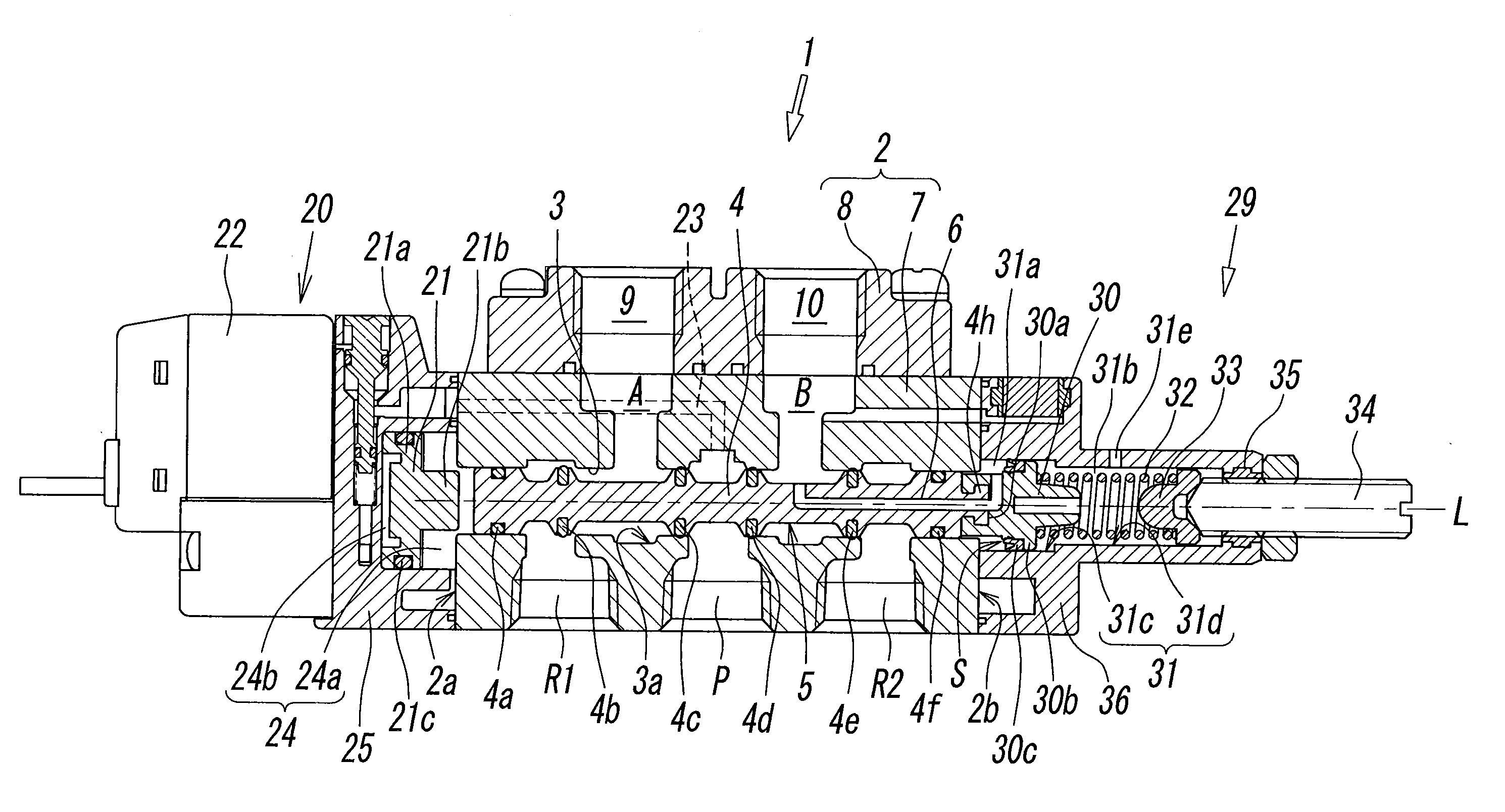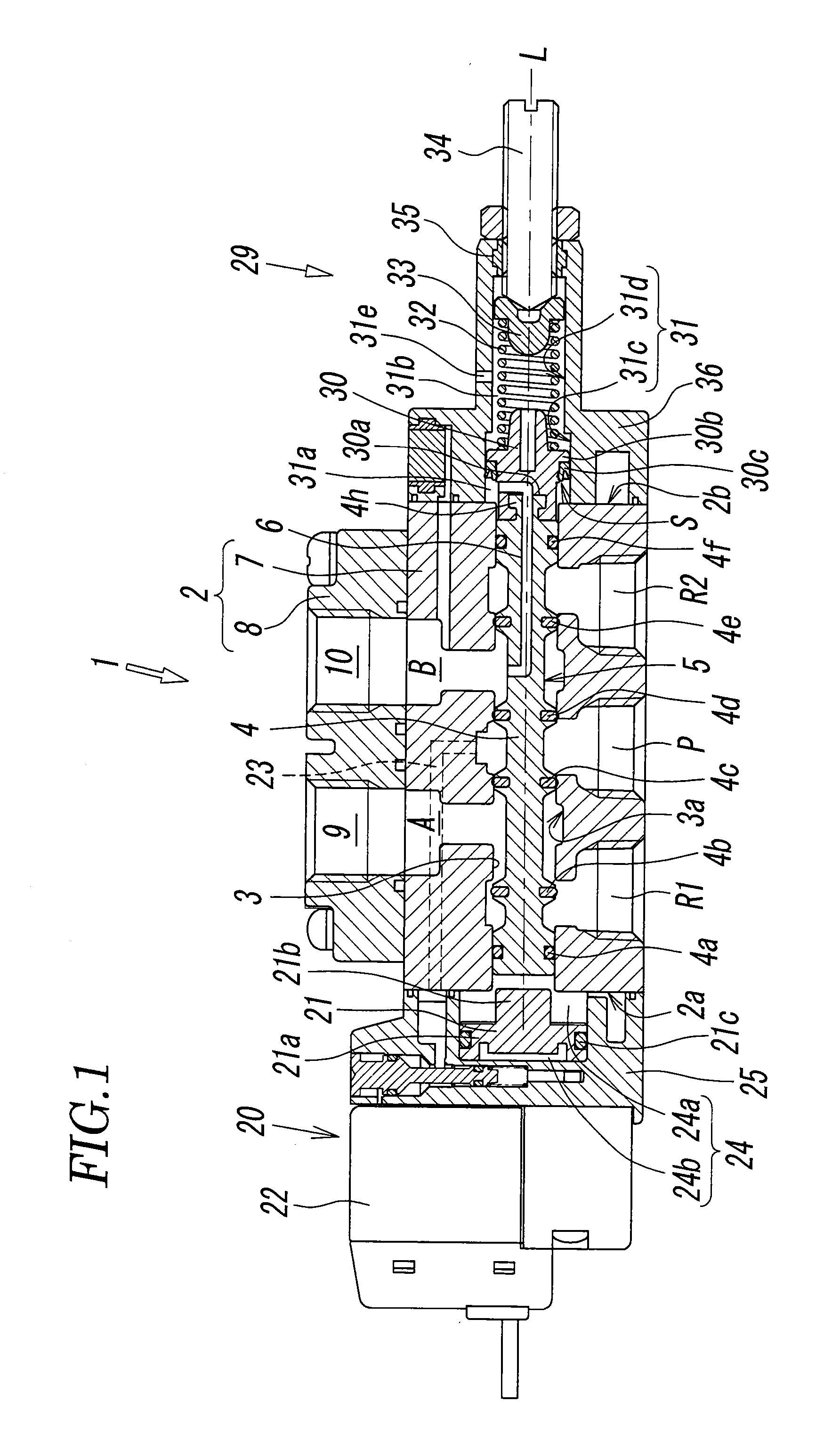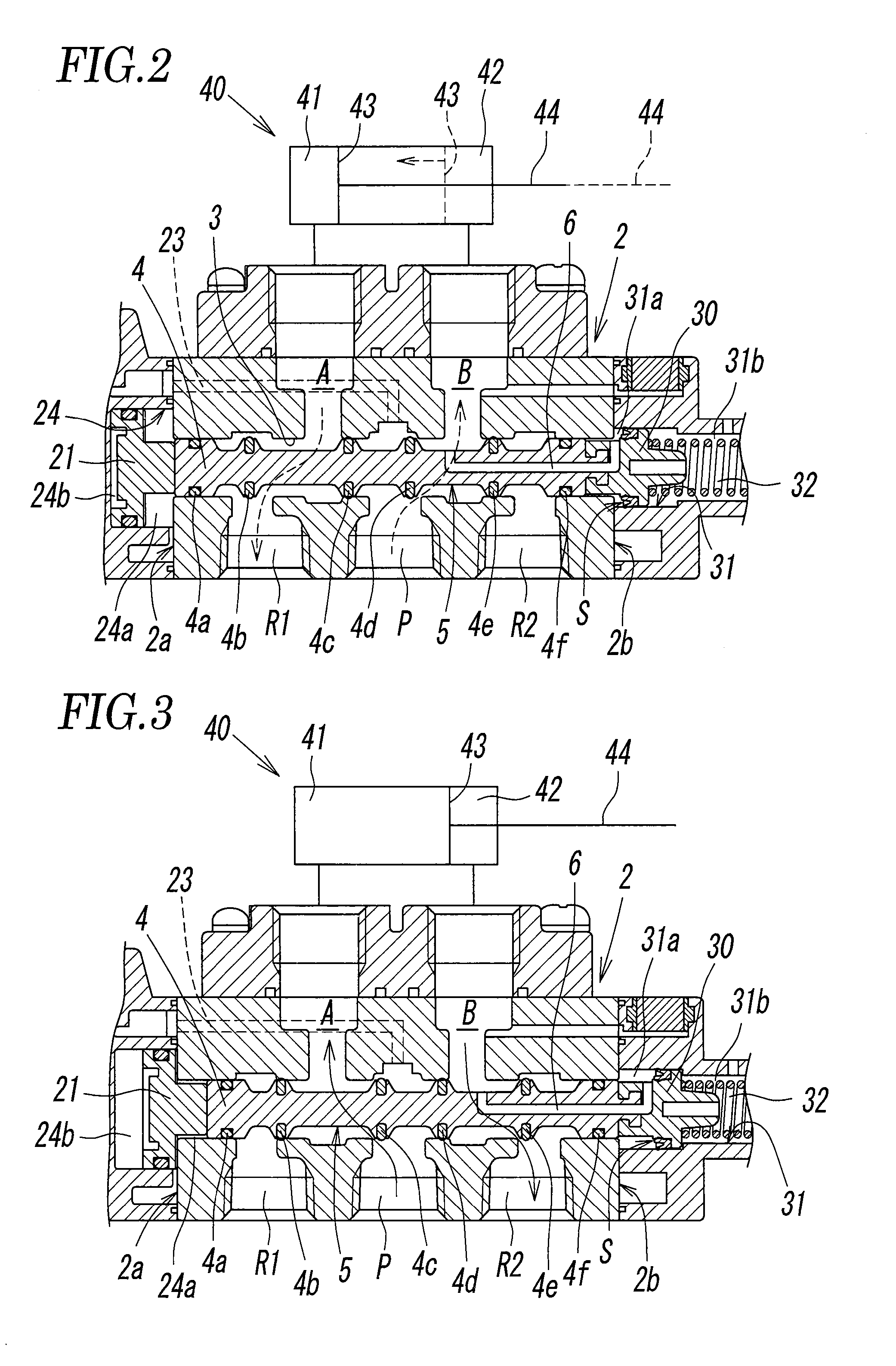Energy-saving valve
a valve and energy saving technology, applied in the field of valves, can solve the problems of increasing the initial cost, complicated equipment, increasing the complexity, etc., and achieve the effects of saving air consumption, reducing pressure, and saving energy
- Summary
- Abstract
- Description
- Claims
- Application Information
AI Technical Summary
Benefits of technology
Problems solved by technology
Method used
Image
Examples
Embodiment Construction
[0022]FIG. 1 illustrates the configuration of an energy-saving valve of the present invention (hereinafter simply referred to as “valve”). A main valve body 2 of a valve 1 generally includes one valve hole 3 which penetrates the inside of a valve casing 7 of the valve main body 2 so as to extend from a first end 2a to a second end 2b opposite thereto in a direction of an axis L; a series of a first air-discharging port R1, an air-supplying port P, and a second air-discharging port R2 which are provided in sequence from the first end 2a to the second end 2b, each having one end which is in communication with the valve hole 3 and having the other end which opens toward one side (lower surface) of the main vale body 2 in parallel with the valve hole 3; and a first output port A and a second output port B, each having one end which is in communication with the valve hole 3 and having the other end which opens toward the other side (upper surface) of the main valve body 2, and the other ...
PUM
 Login to View More
Login to View More Abstract
Description
Claims
Application Information
 Login to View More
Login to View More - Generate Ideas
- Intellectual Property
- Life Sciences
- Materials
- Tech Scout
- Unparalleled Data Quality
- Higher Quality Content
- 60% Fewer Hallucinations
Browse by: Latest US Patents, China's latest patents, Technical Efficacy Thesaurus, Application Domain, Technology Topic, Popular Technical Reports.
© 2025 PatSnap. All rights reserved.Legal|Privacy policy|Modern Slavery Act Transparency Statement|Sitemap|About US| Contact US: help@patsnap.com



